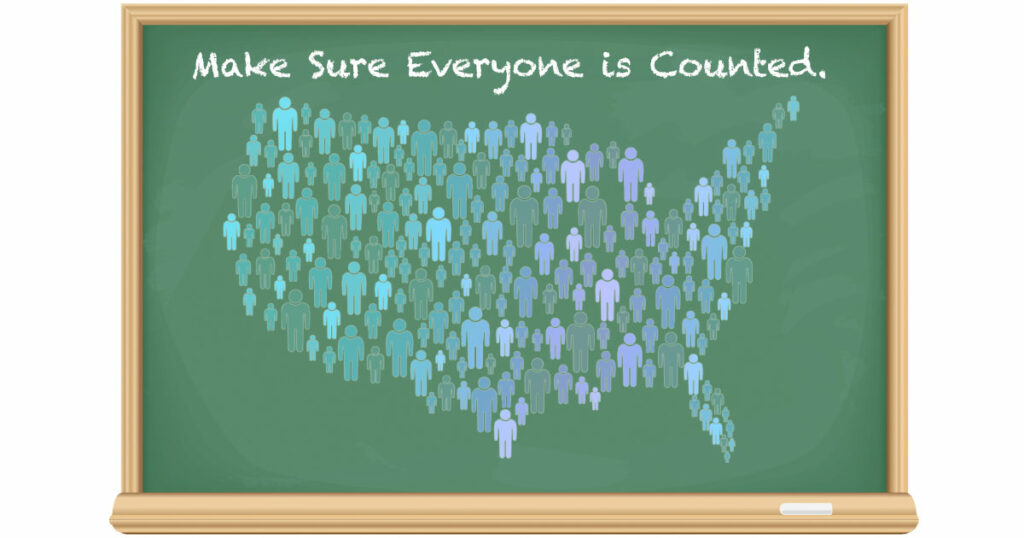Blog
The Census is an Education Justice Issue

The 2020 Census is underway, with the first wave of forms being mailed across the country on April 1, and data collection continuing through the Fall. The COVID-19 pandemic that has disrupted all of our lives could make the Census more difficult—so it’s critical that communities mobilize to make sure all their neighbors are counted.
The Impact of the Census is Bigger than You Think
How the United States’ population is counted affects far more than legislative district boundaries: the present crisis is providing stark examples of the critical, life-and-death importance of an accurate Census. At a time when the shuttering of public schools reminds us of the vital roles they play in educating, feeding, and supporting children and their families, we should also remember the Census determines where and how $14 billion in Federal public education funds will be allocated. Through programs like Title I, the National School Lunch Program, Head Start, and special education grants, these are dollars that will decide whether a school stays open or closed, or if a district can hire school nurses and support staff.
More than 130 public programs allocate over $675 billion to serve primarily low-income people. Because the most disadvantaged are also the most likely to be underreported — including Black, Latinx, and other racialized groups, LGBTQ and gender non-conforming persons, people with disabilities, and those experiencing homelessness — getting the 2020 Census right is more important than ever.
What You Can Do
At Schott we’re glad to see philanthropy stepping up to this crucial task. For example, the Funders Census Initiative 2020 (FCI), is helping to mobilize funding support for community efforts to ensure a fair and accurate 2020 Census.
Without our collective effort, we put at risk the inaccurate distribution of political power and more than $1.5 trillion per year in federal resources, further marginalizing the communities and individuals we support for another decade. Now, the stakes are even more palpable given the disproportionate health and economic impacts of COVID-19 on historically undercounted communities.
Our grantee partners have been stepping up, too. For example, the grassroots group Southern Echo is mobilizing advocates and families across Mississippi and the South to ensure everyone is counted, especially Black and Brown communities.
High stakes for 2020 Census—being undercounted deprives communities of color of equal political representation and federal resources. Be counted! https://t.co/H0qU3HUUZQ #CensusDay pic.twitter.com/Pi0I0OTLyE
— Dr. John H. Jackson (@DrJohnHJackson) April 2, 2020
The effects of the 2020 census will be felt in every community for the next ten years: it doesn’t get much higher stakes than this.
Action Steps
-
Fill out your census forum if you received one in the mail
-
You can also fill out your census online: https://www.2020census.gov
-
Help spread the word by doing census outreach to your friends, neighbors, and coworkers: here’s a toolkit to get started.
-
Promote the census on social media: use this FCCP toolkit with key dates, sample posts, and talking points
We’re living in unprecedented times, and the results of the 2020 Census will play a significant role in determining whether we’re living in a more equitable and just world in the years to come.


